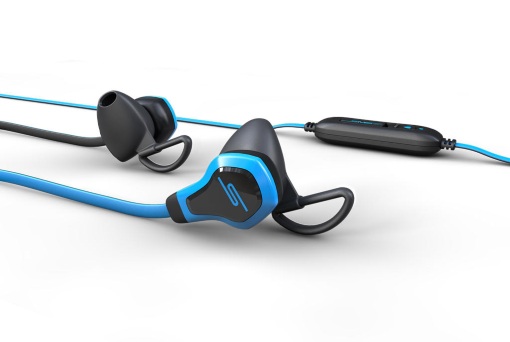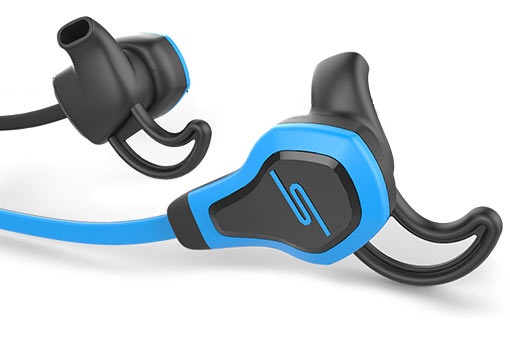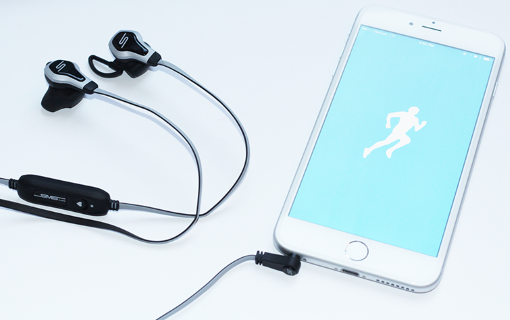Intel and SMS Audio have gotten together to create one of the more unique earbuds on the market today: the SMS Audio BioSport, earbuds that draw power from the smartphone to which it is hooked up to (so there’s no need for a battery) and which can monitor the user’s heartbeat while simultaneously delivering music to the athlete’s ears.

Speaking to its purpose, BioSport measures heart rate through the user’s ear canal and feeds the data into a third-party smartphone app for review after the user has completed their activity.
Intel points out that BioSport’s “ear-wing” design allows it to sit deep in the user’s ear canal, where it can continuously and accurately measure heart rate without interference from other types of noise.

In terms of power, BioSport draws energy from the headphone jack of the smartphone to which it is hooked up to. It’s a fairly advanced method of power consumption, and so not all devices on the market can support it. Those that can are as follows: Apple iPhone 4S, Apple iPhone 5, Apple iPhone 5S, Apple iPhone 5C, Apple iPhone 6, Apple iPhone 6 Plus, Samsung Galaxy Note II, Samsung Galaxy Grand II Duos, Samsung Galaxy S4, Samsung Galaxy S5, LG Nexus 5, and Motorola’s Moto X.

Some of the technical features worth noting about BioSport: it has an IPX4 rating, meaning it’s resistant against sweat and water. It measures 7.2 x 6.5 x 3 inches and weighs about 5.6 ounces. While testing BioSport out, it was obvious the specially tuned 12mm driver is capable of delivering above average bass and dynamic mid-tones.
For the audiophiles out there who are curious about the more granular specifications associated with the BioSport Earbud, note that the bud itself measures 12.4mm, impedance is 32 Ohm, sensitivity is 107.5 dB SPL, and total harmonic distortion is 100Hz~200 Hz SMSaudio.com
Advertisement
Learn more about Intel





